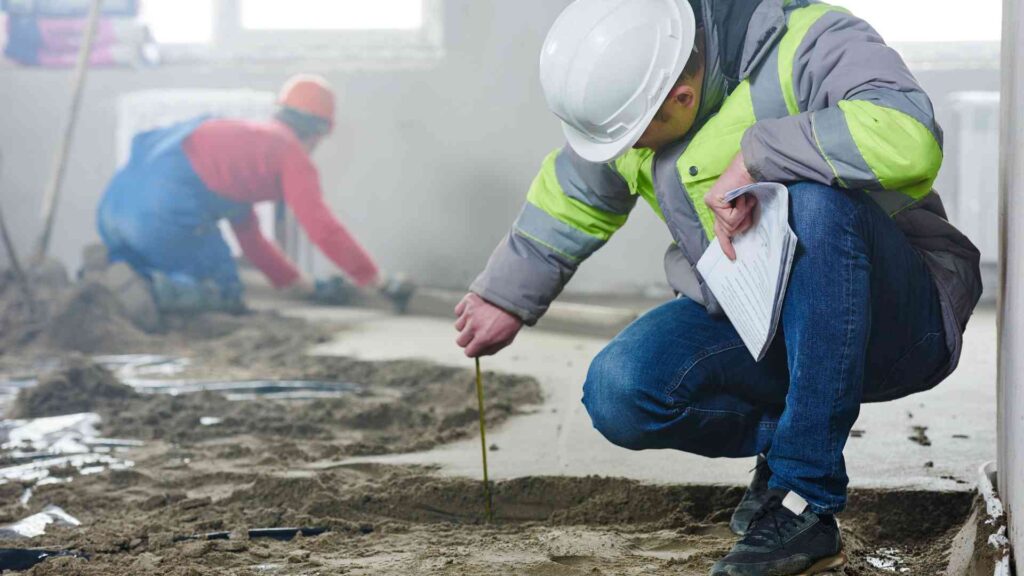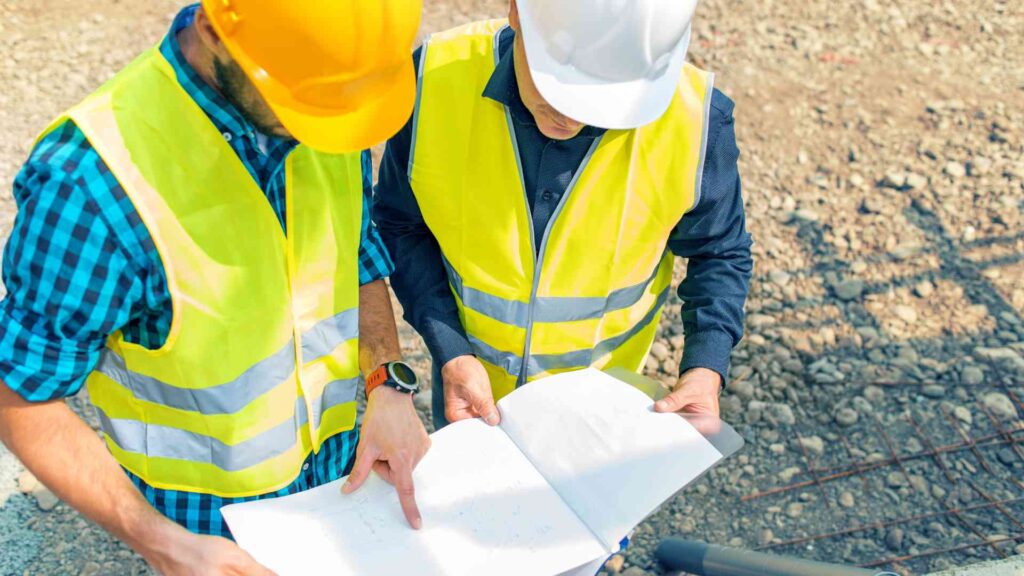Concrete companies play a crucial role in the construction industry by providing various services and expertise related to concrete production. Understanding the role and functions of these companies is essential for anyone involved in construction projects. Whether it’s residential or commercial construction, they contribute significantly to the success of any project.
Understanding the Role of Concrete Companies
Concrete companies play a crucial role in the construction industry. They are responsible for overseeing the production and usage of concrete, a versatile and essential material used in various construction projects. Let’s delve deeper into the basics of concrete production and the services offered by these companies.
The Basics of Concrete Production
Concrete production involves a meticulous process that requires expertise and precision. It begins with the careful mixing of cement, aggregates (such as sand and gravel), water, and often supplementary materials. Each ingredient plays a vital role in determining the strength, durability, and consistency of the final product.
Cement, a binding agent, acts as the glue that holds the concrete together. Aggregates, on the other hand, provide bulk and stability to the mixture. They are carefully selected and graded to ensure the desired strength and texture of the concrete. Water is added to initiate the chemical reaction that causes the mixture to harden and form a solid structure.
Concrete companies are responsible for overseeing this entire process. They ensure that the correct proportions of each ingredient are used, taking into account factors such as the desired strength, weather conditions, and specific project requirements. Through their expertise, they achieve the desired consistency, whether it’s a fluid mixture for pouring or a stiffer mix for structural elements.
Services Offered by Concrete Companies
Concrete companies offer a wide range of services to cater to the diverse needs of their clients throughout the construction process. Their expertise goes beyond just producing concrete; they assist clients in all aspects of concrete usage.
One of the primary services provided by concrete companies is design and consultation. They work closely with architects, engineers, and contractors to develop concrete solutions that meet the project’s requirements. This involves analyzing the structural needs, considering environmental factors, and proposing suitable concrete mixes and reinforcement strategies.
Concrete companies also take charge of the delivery and installation process. They ensure that the concrete is transported to the construction site efficiently and in a timely manner. This involves coordinating with trucking companies, scheduling deliveries, and adhering to strict timelines to avoid any delays in the construction process.
In addition to traditional delivery methods, concrete companies also offer concrete pumping services. Concrete pumps are used to transport the mixture through a system of pipes and hoses, allowing for efficient and precise placement of the material. This is particularly useful in large-scale projects or sites with limited accessibility, where manual pouring may be challenging or time-consuming.
Furthermore, concrete companies provide quality control and testing services to ensure that the produced concrete meets the required standards. They conduct various tests, such as slump tests, compressive strength tests, and durability assessments, to verify the quality and performance of the concrete. This helps in identifying any potential issues and making necessary adjustments to achieve the desired results.
Overall, concrete companies play a crucial role in the construction industry by providing comprehensive services related to concrete production and usage. Their expertise, attention to detail, and commitment to quality contribute to the successful completion of construction projects of all scales and complexities.
The Process of Concrete Manufacturing
Concrete manufacturing is a complex process that involves several steps to ensure the production of a high-quality and durable end product. From selecting the raw materials to curing the concrete, each step requires precision and expertise. Let’s take a closer look at the different stages involved in the concrete production process.
Raw Materials Used in Concrete
Concrete companies carefully select the raw materials used in the production process to ensure the desired properties and characteristics of the final product. One of the key ingredients is cement, which plays a crucial role in providing strength and durability to the concrete. There are different types of cement available, each with its own unique properties suitable for specific applications.
In addition to cement, aggregates are also essential components of concrete. Aggregates consist of sand, gravel, or crushed stone, and they provide the volume and strength to the concrete mixture. The size and quality of the aggregates used can significantly impact the final product’s strength and overall performance.
Other materials, such as water and admixtures, are also used in concrete manufacturing. Water is necessary for the hydration process, where the cement particles react chemically to form a solid mass. Admixtures, on the other hand, are added to modify the properties of the concrete, such as improving workability, reducing water content, or enhancing durability.
Steps in the Concrete Production Process
The concrete production process involves several crucial steps, each contributing to the overall quality and durability of the end product.
1. Batching or Measuring the Ingredients
The first step in the concrete manufacturing process is batching or measuring the ingredients accurately. This step requires careful calculations and precise measurements to ensure the desired concrete mix proportions. The correct ratio of cement, aggregates, water, and admixtures is crucial to achieve the desired strength and workability of the concrete.
Modern concrete batching plants use sophisticated computer systems to automate the batching process, ensuring accuracy and consistency in the mix proportions. The ingredients are carefully weighed and then combined in the correct order to create a homogeneous mixture.
2. Mixing
Once the ingredients are accurately measured, the next step is mixing them together. The mixing process aims to distribute the cement particles evenly throughout the aggregates, ensuring a uniform and consistent mixture.
There are different methods of mixing concrete, including hand mixing, machine mixing, and ready-mix concrete. Hand mixing is suitable for small-scale projects, while machine mixing is commonly used for larger construction sites. Ready-mix concrete is a popular option where the concrete is delivered to the construction site in a pre-mixed state, ready for immediate use.
3. Transporting
After the concrete is mixed, it needs to be transported to the construction site. The transportation method depends on the project’s scale and location. For small projects, wheelbarrows or buckets may be used to manually transport the concrete. In contrast, larger construction sites often utilize concrete mixers or pump trucks to transport the concrete efficiently.
During transportation, it is essential to prevent segregation or separation of the concrete ingredients. Proper handling and careful transportation help maintain the integrity and consistency of the concrete mixture.
4. Placing
Once the concrete reaches the construction site, it is time for placing. Placing refers to the process of depositing the concrete into its final position, such as formwork or molds. This step requires skill and precision to ensure the concrete is evenly distributed and properly compacted.
Various techniques can be used for placing concrete, including pouring, pumping, or spraying. The choice of method depends on factors such as the project’s requirements, accessibility, and the nature of the construction site.
5. Curing
After the concrete is placed, it needs to be cured properly to ensure its strength and durability. Curing is the process of maintaining adequate moisture and temperature conditions for the concrete to hydrate and gain strength.
There are different curing methods available, including water curing, membrane curing, and curing compounds. The chosen method depends on factors such as the project’s requirements, environmental conditions, and time constraints.
Proper curing is crucial for the concrete’s long-term performance, as it helps prevent cracking, improves durability, and enhances overall strength.
In conclusion, the process of concrete manufacturing involves careful selection of raw materials, precise batching, thorough mixing, efficient transportation, accurate placing, and proper curing. Each step contributes to the quality, strength, and durability of the final product. By following these steps meticulously, concrete companies can ensure the production of high-quality concrete that meets the specific requirements of various construction projects.
Specializations within the Concrete Industry
Residential Concrete Services
Concrete companies specializing in residential projects provide services such as driveways, walkways, foundations, and patios. They work closely with homeowners and builders to create functional and aesthetically pleasing concrete structures that complement the overall design of the property.
Commercial Concrete Services
Commercial concrete services encompass a wide range of projects, including industrial facilities, office buildings, parking structures, and retail spaces. Concrete companies specializing in commercial projects understand the specific requirements of these structures, such as high-load-bearing capacity and durability.
The Importance of Quality Control in Concrete Companies
Quality Assurance Measures in Concrete Production
Concrete companies have rigorous quality control procedures to ensure that the produced concrete meets the required standards. These measures include thorough testing of materials, regular equipment maintenance, and adherence to industry guidelines and regulations. Quality assurance is fundamental in guaranteeing the safety and performance of the final product.
The Impact of Quality Control on Final Product
By implementing robust quality control measures, concrete companies can deliver superior products with consistent quality. Proper quality control helps prevent issues such as cracks, premature deterioration, and structural failures, which can be costly and pose risks to the safety of occupants. It also enhances customer satisfaction, as clients can rely on the durability and performance of the concrete structures.
Future Trends in the Concrete Industry
Technological Advancements in Concrete Production
The concrete industry is continually evolving with the introduction of advanced technologies. Innovations such as self-healing concrete, 3D-printed concrete structures, and smart materials aim to enhance the performance, sustainability, and efficiency of concrete production. These advancements offer exciting possibilities for the future of construction.
Sustainability Efforts in the Concrete Industry
In recent years, there has been a growing emphasis on sustainability within the concrete industry. Concrete companies are increasingly adopting eco-friendly practices, such as using recycled materials, optimizing energy consumption, and reducing carbon emissions. These efforts contribute to a more sustainable construction sector and mitigate the environmental impact of concrete production.
In conclusion, concrete companies play a fundamental role in the construction industry. Their expertise in concrete production, wide-ranging services, and commitment to quality control ensure the successful implementation of residential and commercial projects. As the industry evolves, concrete companies continue to embrace new technologies and sustainability practices, forging a more innovative and environmentally conscious future for the construction sector.


